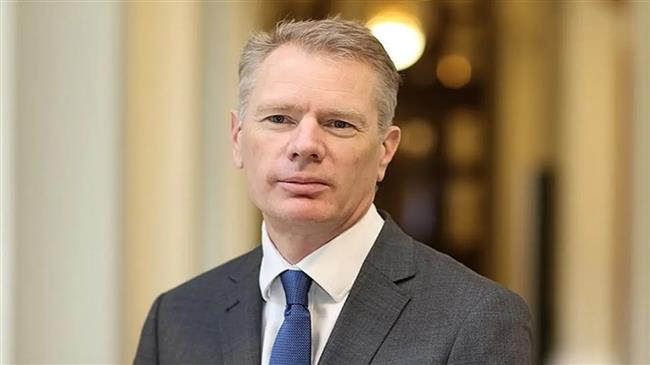“We summoned the ambassador and he was reprimanded severely,” Araqchi said.
He added that the Iranian Foreign Ministry later issued a statement warning that in case of repetition of such a behavior, the ministry will adopt measures tougher than just summoning the ambassador.
Macaire further said in the video posting that Britain wanted to cooperate with Iran, France, Germany, Russia and China as the remaining signatories to a 2015 nuclear deal, officially known as the Joint Comprehensive Plan of Action (JCPOA), after the US unilateral withdrawal from it.
US President Donald Trump, a stern critic of the landmark deal, unilaterally pulled Washington out of the JCPOA in May 2018, and unleashed the “toughest ever” sanctions against the Islamic Republic in defiance of global criticism in an attempt to strangle the Iranian oil trade.
On January 5, Iran took a final step in reducing its commitments, and said it would no longer observe any operational limitations on its nuclear industry, whether concerning the capacity and level of uranium enrichment, the volume of stockpiled uranium or research and development.
In response to the US move, Tehran has so far rowed back on its nuclear commitments five times in compliance with Articles 26 and 36 of the JCPOA, but stressed that its retaliatory measures will be reversible as soon as Europe finds practical ways to shield the mutual trade from the US sanctions.
The British diplomat further added that his country seeks to use the dispute resolution mechanism in the nuclear deal — which Britain, France and Germany triggered last month — to find a path forward in order to be able to “allay international concerns about Iran’s nuclear program and also allay Iran’s concerns about the economic benefits” of the JCPOA.
He also reiterated London’s full commitments to the JCPOA and a non-dollar direct payment channel — officially called the Instrument in Support of Trade Exchanges (INSTEX) — aimed at facilitating trade with Iran in the face of US sanctions even after Britain’s official withdrawal from the European Union.
“In recent weeks, we held important talks with Iranian officials on a number of other issues, including the danger of lack of stability in Iraq and the region, support for families of the victims of the downed Ukrainian plane and some important mutual issues like trade and visa,” Macaire said.
